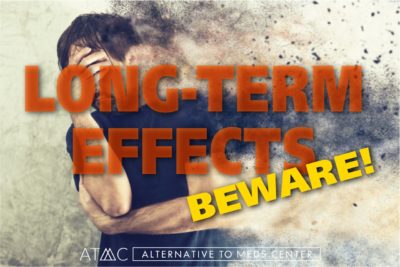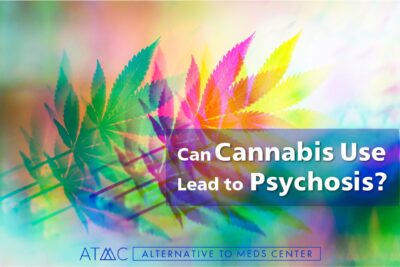1. FDA drug label Abilify (aripiprazole) Orally Disintegrating Tablets, Oral Solution, Injection for intramuscular use only Approv 2002 [cited 2023 Jan 2]
2. Harrow M, Jobe TH. Does long-term treatment of schizophrenia with antipsychotic medications facilitate recovery? Schizophr Bull. 2013 Sep;39(5):962-5. doi: 10.1093/schbul/sbt034. Epub 2013 Mar 19. PMID: 23512950; PMCID: PMC3756791. [cited 2023 Jan 2]
3. Harrow M, Jobe TH, Faull RN. Do all schizophrenia patients need antipsychotic treatment continuously throughout their lifetime? A 20-year longitudinal study. Psychol Med. 2012 Oct;42(10):2145-55. doi: 10.1017/S0033291712000220. Epub 2012 Feb 17. PMID: 22340278. [cited 2023 Jan 2]
4. Matei VP, Mihailescu AI, Davidson M. Is non-pharmacological treatment an option for certain schizophrenia patients? Psychiatr Danub. 2014 Dec;26(4):308-13. PMID: 25377364. [cited 2023 Jan 2]
5. Correll CU, Rubio JM, Kane JM. What is the risk-benefit ratio of long-term antipsychotic treatment in people with schizophrenia? World Psychiatry. 2018 Jun;17(2):149-160. doi: 10.1002/wps.20516. PMID: 29856543; PMCID: PMC5980517. [cited 2023 Jan 2]
6. Gettu N, Saadabadi A. Aripiprazole. [Updated 2022 May 21]. In: StatPearls [Internet]. Treasure Island (FL): StatPearls Publishing; 2022 Jan-. Available from: https://www.ncbi.nlm.nih.gov/books/NBK547739/ [cited 2023 Jan 2]
7. Swainston Harrison T, Perry CM. Aripiprazole: a review of its use in schizophrenia and schizoaffective disorder. Drugs. 2004;64(15):1715-36. doi: 10.2165/00003495-200464150-00010. PMID: 15257633. [cited 2023 Jan 2]
8. Bola JR, Mosher LR. Treatment of acute psychosis without neuroleptics: two-year outcomes from the Soteria project. J Nerv Ment Dis. 2003 Apr;191(4):219-29. doi: 10.1097/01.NMD.0000061148.84257.F9. PMID: 12695732. [cited 2023 Jan 2]
9. Goff DC, Falkai P, Fleischhacker WW, Girgis RR, Kahn RM, Uchida H, Zhao J, Lieberman JA. The Long-Term Effects of Antipsychotic Medication on Clinical Course in Schizophrenia. Am J Psychiatry. 2017 Sep 1;174(9):840-849. doi: 10.1176/appi.ajp.2017.16091016. Epub 2017 May 5. Erratum in: Am J Psychiatry. 2017 Aug 1;174(8):805. PMID: 28472900. [cited 2023 Jan 2]
10. Ran MS, Weng X, Chan CL, Chen EY, Tang CP, Lin FR, Mao WJ, Hu SH, Huang YQ, Xiang MZ. Different outcomes of never-treated and treated patients with schizophrenia: 14-year follow-up study in rural China. Br J Psychiatry. 2015 Dec;207(6):495-500. doi: 10.1192/bjp.bp.114.157685. Epub 2015 Sep 17. PMID: 26382951; PMCID: PMC4664855.
11. Lieberman J, Chakos M, Wu H, Alvir J, Hoffman E, Robinson D, Bilder R. Longitudinal study of brain morphology in first episode schizophrenia. Biol Psychiatry. 2001 Mar 15;49(6):487-99. doi: 10.1016/s0006-3223(01)01067-8. PMID: 11257234. [cited 2023 Jan 2]
12. Mété D, Dafreville C, Paitel V, Wind P. Aripiprazole, jeu pathologique et sexualité compulsive [Aripiprazole, gambling disorder and compulsive sexuality]. Encephale. 2016 Jun;42(3):281-3. French. doi: 10.1016/j.encep.2016.01.003. Epub 2016 Feb 26. PMID: 26923999. [cited 2023 Jan 2]
13. Moseley CN, Simpson-Khanna HA, Catalano G, Catalano MC. Covert dyskinesia associated with aripiprazole: a case report and review of the literature. Clin Neuropharmacol. 2013 Jul-Aug;36(4):128-30. doi: 10.1097/WNF.0b013e31829b99d9. PMID: 23860346. [cited 2023 Jan 2]
14. Padder T, Skodnek K, Hashmi S, Samad M, Udyawar A, Azhar N, Jaghab K. Acute akathisia with suicidal ideation associated with low dose aripiprazole. Psychiatry (Edgmont). 2006 Apr;3(4):40-3. PMID: 21103170; PMCID: PMC2990567. [cited 2023 Jan 2]
15. Bacon A, Granholm E, Withers N. Substance-Induced Psychosis. Semin Clin Neuropsychiatry. 1998 Jan;3(1):70-79. PMID: 10085193. [cited 2023 Jan 2]
16. Hasan A, von Keller R, Friemel CM, Hall W, Schneider M, Koethe D, Leweke FM, Strube W, Hoch E. Cannabis use and psychosis: a review of reviews. Eur Arch Psychiatry Clin Neurosci. 2020 Jun;270(4):403-412. doi: 10.1007/s00406-019-01068-z. Epub 2019 Sep 28. PMID: 31563981. [cited 2023 Jan 2]
17. Di Forti M, Quattrone D, Freeman TP, Tripoli G, Gayer-Anderson C, Quigley H, Rodriguez V, Jongsma HE, Ferraro L, La Cascia C, La Barbera D, Tarricone I, Berardi D, Szöke A, Arango C, Tortelli A, Velthorst E, Bernardo M, Del-Ben CM, Menezes PR, Selten JP, Jones PB, Kirkbride JB, Rutten BP, de Haan L, Sham PC, van Os J, Lewis CM, Lynskey M, Morgan C, Murray RM; EU-GEI WP2 Group. The contribution of cannabis use to variation in the incidence of psychotic disorder across Europe (EU-GEI): a multicentre case-control study. Lancet Psychiatry. 2019 May;6(5):427-436. doi: 10.1016/S2215-0366(19)30048-3. Epub 2019 Mar 19. PMID: 30902669; PMCID: PMC7646282. [cited 2023 Jan 2]
18. Sewell RA, Ranganathan M, D’Souza DC. Cannabinoids and psychosis. Int Rev Psychiatry. 2009 Apr;21(2):152-62. doi: 10.1080/09540260902782802. PMID: 19367509. [cited 2023 Jan 2]
19. Alvarez-Jimenez M, O’Donoghue B, Thompson A, Gleeson JF, Bendall S, Gonzalez-Blanch C, Killackey E, Wunderink L, McGorry PD. Beyond Clinical Remission in First Episode Psychosis: Thoughts on Antipsychotic Maintenance vs. Guided Discontinuation in the Functional Recovery Era. CNS Drugs. 2016 May;30(5):357-68. doi: 10.1007/s40263-016-0331-x. PMID: 27106296. [cited 2023 Jan 2]
20. Harrow M, Jobe TH, Faull RN. Does treatment of schizophrenia with antipsychotic medications eliminate or reduce psychosis? A 20-year multi-follow-up study. Psychol Med. 2014 Oct;44(14):3007-16. doi: 10.1017/S0033291714000610. Epub 2014 Mar 24. PMID: 25066792. [cited 2023 Jan 2]
21. Green AI, Burgess ES, Dawson R, Zimmet SV, Strous RD. Alcohol and cannabis use in schizophrenia: effects of clozapine vs. risperidone. Schizophr Res. 2003 Mar 1;60(1):81-5. doi: 10.1016/s0920-9964(02)00231-1. PMID: 12505141. [cited 2023 Jan 2]
22. Samochowiec J, Misiak B. Gut microbiota and microbiome in schizophrenia. Curr Opin Psychiatry. 2021 Sep 1;34(5):503-507. doi: 10.1097/YCO.0000000000000733. PMID: 34155149. [cited 2023 Jan 2]
23. Taliercio J, Bonasera B, Portillo C, Ramjas E, Serper M. Physical Activity, Sleep-related Behaviors and Severity of Symptoms in Schizophrenia. Psychiatry Res. 2020 Dec;294:113489. doi: 10.1016/j.psychres.2020.113489. Epub 2020 Oct 2. PMID: 33038793. [cited 2023 Jan 2]
24. Nakata Y, Kanahara N, Iyo M. Dopamine supersensitivity psychosis in schizophrenia: Concepts and implications in clinical practice. J Psychopharmacol. 2017 Dec;31(12):1511-1518. doi: 10.1177/0269881117728428. Epub 2017 Sep 19. PMID: 28925317. [cited 2023 Jan 2]
25. Holt RIG. Association Between Antipsychotic Medication Use and Diabetes. Curr Diab Rep. 2019 Sep 2;19(10):96. doi: 10.1007/s11892-019-1220-8. PMID: 31478094; PMCID: PMC6718373. [cited 2023 Jan 2]
26. Jonas WB, Eisenberg D, Hufford D, Crawford C. The evolution of complementary and alternative medicine (CAM) in the USA over the last 20 years. Forsch Komplementmed. 2013;20(1):65-72. doi: 10.1159/000348284. Epub 2013 Feb 25. PMID: 23727764. [cited 2023 Jan 2]
27. Moritz S, Andreou C, Klingberg S, Thoering T, Peters MJ. Assessment of subjective cognitive and emotional effects of antipsychotic drugs. Effect by defect? Neuropharmacology. 2013 Sep;72:179-86. doi: 10.1016/j.neuropharm.2013.04.039. Epub 2013 May 3. PMID: 23643756. [cited 2023 Jan 2]

 The eruption of a crisis situation such as mania or psychosis does not allow for much else than bringing the situation under control as quickly as possible. Abilify is prescribed for such reasons as to control mania, psychosis, agitation, and irritability in autism.6 It is not uncommon that a diagnosis may be imperfect during such a period of acute turbulence. Often, a prescription drug may have been the only practical choice at that time. However, after the crisis has passed, a more thorough assessment of all the factors involved may enable transitioning to other treatment methods moving forward. It is quite common, however, that once a diagnosis is made and a prescription is initiated, no further investigation is done. In fact, long-term use of antipsychotic medication has become the immovable cornerstone of treatment for schizophrenia despite the APA suggesting that when the patient has stabilized, discontinuing treatment with antipsychotics should be considered.2 A person may thus end up continuing to take medication for a very long time, despite having achieved adequate stabilization or remission of symptoms.
The eruption of a crisis situation such as mania or psychosis does not allow for much else than bringing the situation under control as quickly as possible. Abilify is prescribed for such reasons as to control mania, psychosis, agitation, and irritability in autism.6 It is not uncommon that a diagnosis may be imperfect during such a period of acute turbulence. Often, a prescription drug may have been the only practical choice at that time. However, after the crisis has passed, a more thorough assessment of all the factors involved may enable transitioning to other treatment methods moving forward. It is quite common, however, that once a diagnosis is made and a prescription is initiated, no further investigation is done. In fact, long-term use of antipsychotic medication has become the immovable cornerstone of treatment for schizophrenia despite the APA suggesting that when the patient has stabilized, discontinuing treatment with antipsychotics should be considered.2 A person may thus end up continuing to take medication for a very long time, despite having achieved adequate stabilization or remission of symptoms. Changes in brain volume 11
Changes in brain volume 11 Of note, recreational cannabis use in society is on a steep incline, with access to much more potent products than ever before. As opposed to medical marijuana, the recreational use of cannabis increases the risk of drug-induced episodes of psychosis. In today’s world where cannabis has become popularized within the mainstream, this phenomenon may become more prevalent as time goes on.
Of note, recreational cannabis use in society is on a steep incline, with access to much more potent products than ever before. As opposed to medical marijuana, the recreational use of cannabis increases the risk of drug-induced episodes of psychosis. In today’s world where cannabis has become popularized within the mainstream, this phenomenon may become more prevalent as time goes on. Gradual, safe
Gradual, safe 








